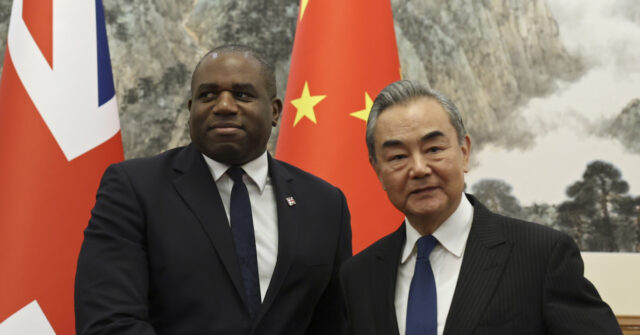In a significant diplomatic move, Britain’s Foreign Secretary David Lammy is currently undertaking a two-day visit to China, marking the first trip by a British Cabinet minister since the Labor government took office in July. This visit comes at a time when UK-China relations have soured due to various contentious issues, including allegations of espionage against China, its support for Russia amid the ongoing conflict in Ukraine, and the crackdown on civil liberties in Hong Kong, a former British colony. In this context, Lammy aims to recalibrate Britain’s approach to China, emphasizing the necessity of pragmatic engagement.
During his visit, Lammy held discussions with Vice Premier Ding Xuexiang, and planned to meet with Foreign Minister Wang Yi later in the day. These conversations are crucial for addressing both contentious and cooperative issues between the two nations. The Foreign Secretary articulated the need for candid dialogue surrounding pressing matters, including the importance of halting Russia’s invasion of Ukraine, highlighting that clear communication is essential to safeguard the UK’s national interests amid these geopolitical challenges.
One of the focal points of Lammy’s discussions is expected to be the call for China to cut its political and economic ties with Russia, especially as the US has recently imposed sanctions on two Chinese companies accused of aiding Russia in developing long-range attack drones for use in the Ukraine war. The Chinese Embassy in Washington, however, refuted these allegations, claiming them to be unfounded. This backdrop adds further complexity to the ongoing discussions, as both the UK and China navigate their respective positions concerning global security and cooperation.
Additionally, Lammy’s itinerary includes a visit to Shanghai, where he intends to engage with British business leaders. China’s economic role is significant, as it ranks as the UK’s fourth-largest trading partner, which adds an economic dimension to the diplomatic talks. Strengthening business ties is paramount, especially as both countries explore avenues for cooperation in trade, technology, and climate initiatives. The need to balance economic interests with human rights advocacy creates a challenging diplomatic landscape for Lammy.
Human rights concerns are expected to play a significant role in Lammy’s talks, as pressure mounts from advocacy groups urging him to address China’s treatment of dissenters in regions like Hong Kong, Xinjiang, and Tibet. The situation in Hong Kong, in particular, remains a point of contention, with Prime Minister Keir Starmer’s spokesperson stating that securing the release of British citizen Jimmy Lai is a priority for the British government. Lai, a prominent media publisher, has been in custody since December 2020 and is set to testify in a high-profile national security trial in the coming month.
Overall, Lammy’s visit to China represents a critical opportunity for the UK to redefine its relationship with a key global player. By emphasizing a pragmatic and necessary approach to engagement, he seeks to foster dialogue on crucial global issues, bolstered by economic ties while also advocating for human rights. This dual approach underlines the complexities inherent in modern diplomacy, where nations must navigate a myriad of challenges ranging from geopolitical security to the safeguarding of fundamental individual liberties.

